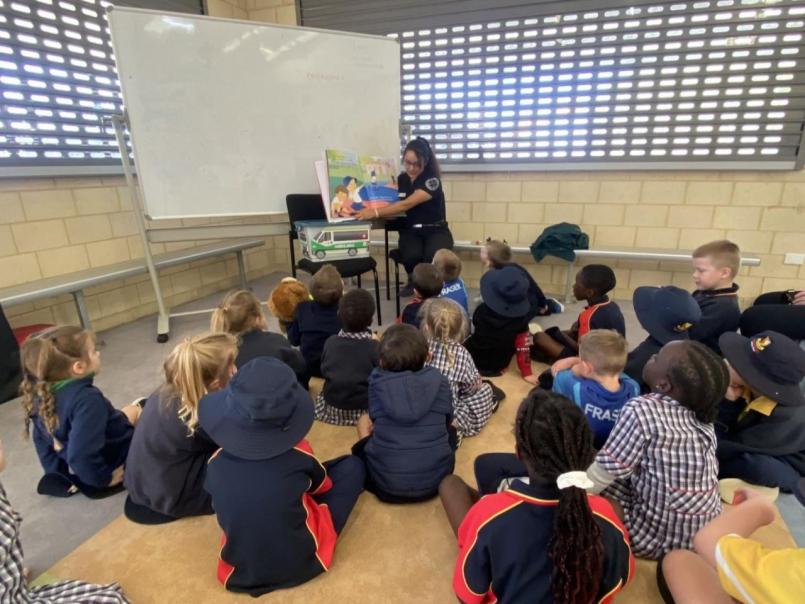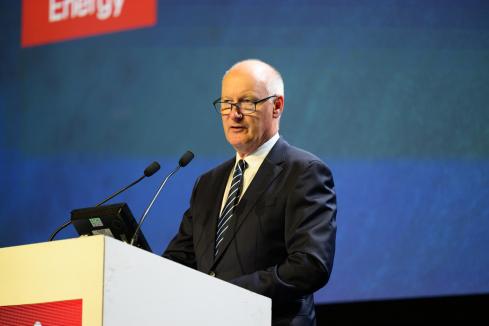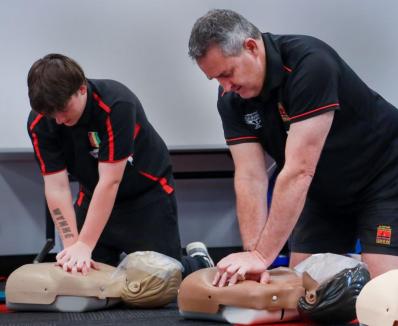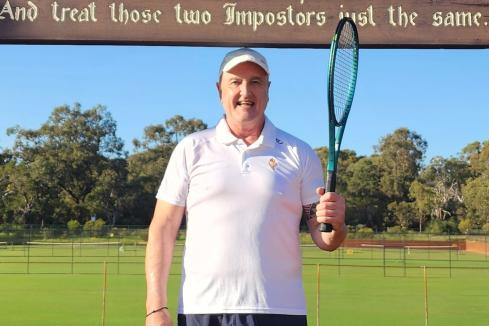St John WA’s First Aid Focus program delivers lifesaving first aid skills to tens of thousands of students in remote and disadvantaged areas across the state each year.


St John WA’s First Aid Focus program delivers lifesaving first aid skills to tens of thousands of students in remote and disadvantaged areas across the state each year.
The free in-school program offers age-appropriate first aid classes for Western Australian students ranging from pre-kindy to Year 12, ensuring students are empowered to take the right steps to save a life in the event of a healthcare emergency.
Sadly, about one Western Australian child calls Triple Zero (000) for their parent or carer each month, meaning the educational program can be the difference between life and death.
The program delivers the lifesaving first aid skills to about 85,000 students each year, supported by generous corporate and philanthropic donations and partnerships.
This year, Channel 7 Telethon Trust donated more than $34,000 to the program to teach first aid to more than 10,500 remote, disadvantaged and vulnerable children aged four to 17. Telethon’s funding provided first aid training to 10 schools in remote communities mostly in the Pilbara and Mid West, reaching 3046 children disadvantaged by distance.
“Through this outreach, we have established strong relationships with teachers and principals in these remote communities who will be working closely with us to continue to pave the future for future growth and expansion of the First Aid Focus program,” St John WA’s Social Sustainability Manager Angel Robins said.
“Thanks to Telethon, this project has helped address educational disparities and fostering opportunities for growth and development within remote and disadvantaged communities by laying a foundation for sustained impact, contributing to the broader goal of promoting inclusivity and equity in education.”
Not-for-profit health insurance provider HIF donated $24,500 to program to deliver the first aid program to 4000 students this year, including more than 200 students each at Ellenbrook’s Anne Hamersley Primary School.
HIF has partnered with St John WA for three years with the aim of growing healthcare services for the benefit of WA’s outlying and fastest growing communities. The local government area of Swan Hills in which Ellenbrook falls had among the poorest rates of bystander CPR for the state, according to a recent study by the Australasian Resuscitation Outcomes Consortium (Aus-ROC).
“We are really proud that our partnership with St John will help over 4000 children learn the critical life-saving skill of first aid this year,” HIF CEO Justin James said.
“The program starts with helping children to recognise an emergency and call Triple Zero (000). Sadly, children may be faced with a parent or family member experiencing a medical emergency and be the only ones on hand to assist.
“Learning first aid is crucial no matter what your age – it has the potential to stop a minor mishap from becoming something much worse – but ultimately has the power to save lives in our homes and communities.”
Children learning first aid has a multiplier effect on families, with 1.5 parents also benefiting from their children’s on-shared knowledge and help during an emergency when another adult might not be around to assist.
“First Aid Focus is part of St John WA’s commitment to building a strong and resilient Western Australia which delivers life-saving skills to about 85,000 students every year,” St John WA Chief Preventative Officer Megs O’Donnell said.
“About one Western Australian child calls Triple Zero (000) for their parent or carer each month, meaning the educational program can be the difference between life and death. We can’t understate the importance of the program, which has already led to lives being saved.”
Last year, eight-year-old Tia Cummins used the lifesaving skills she learned through First Aid Focus classes at her Swan View school to save her sister’s life. Tia credited her actions with what she learned mere hours earlier at school.
“Beyond imparting valuable education, the program has sparked interest among high school-aged students to pursue careers in the health sector,” Ms O’Donnell said.
“This ripple effect is particularly impactful in remote communities, where reliance on volunteers and limited access to health services pose significant challenges.
“The program not only addresses immediate educational needs but also lays the groundwork for building a sustainable community, bridging the gap in essential services, and fostering a new generation of healthcare professionals.”
To learn more about First Aid Focus and St John WA partnerships, visit the St John WA website.












